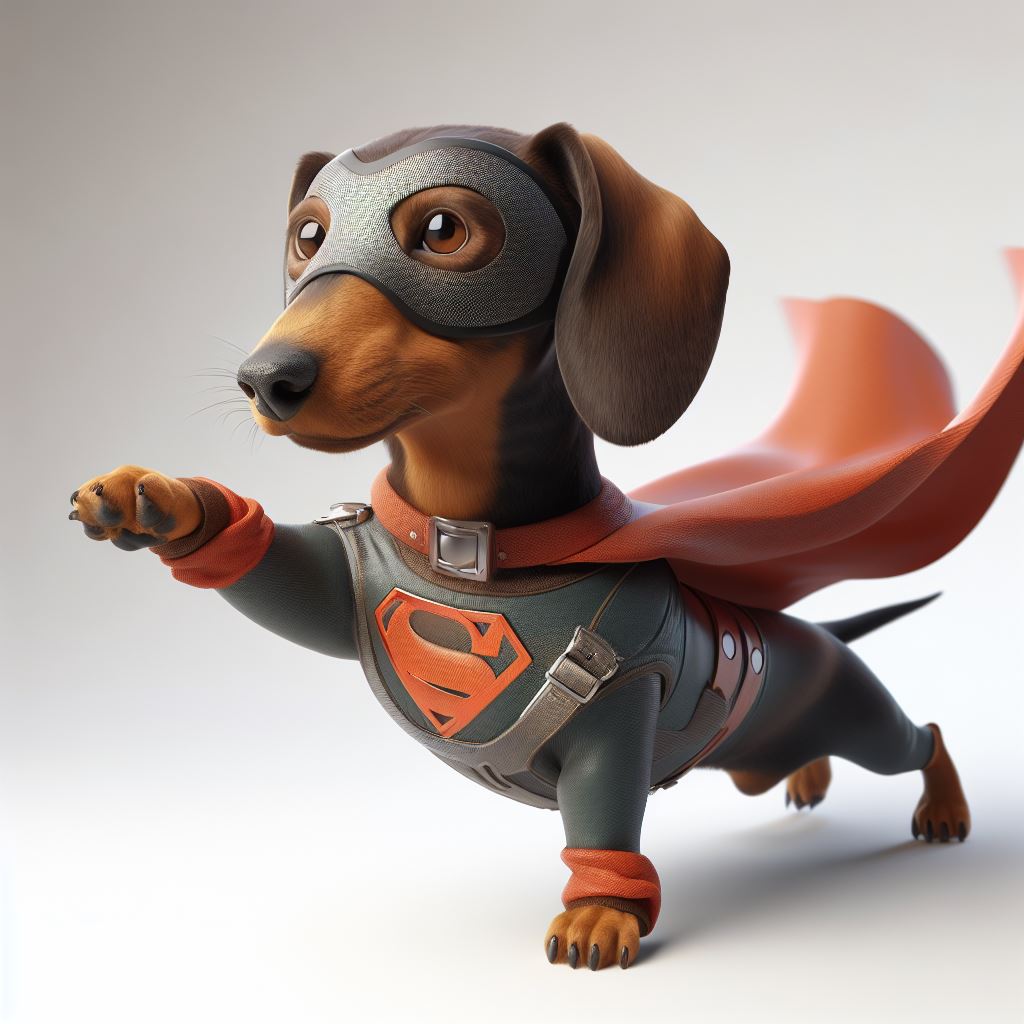Why Dachshunds Are the Worst Breed?

Why Dachshunds Are the Worst Breed?:- Dachshunds are undeniably intelligent, which might seem like a plus for training. However, their cleverness can sometimes be a double-edged sword.
Originally bred for hunting, dachshunds have a strong instinct to react to stimuli. This can make them quite unpredictable and occasionally aggressive, especially if they become frustrated with training. Their keen senses mean they’re easily distracted by things like birds or other animals, pulling their focus away from your training efforts.
Furthermore, their intelligence means they might recognize when you’re trying to train them and choose to ignore it. This can turn training sessions into a frustrating challenge, as they might resist conditioning efforts altogether.

Dachshunds can be possessive
Dachshunds can be quite possessive, especially when it comes to their squeaker toys, which they might love almost as much as their food. This possessiveness can extend to their favorite people and even their beds. This behavior, called resource-guarding, can manifest in various ways such as growling, showing teeth, stiffening their body, gobbling food quickly, nipping, or barking when someone approaches their belongings. If you observe your Dachshund displaying these guarding behaviors, it’s crucial to address the issue promptly to prevent it from escalating.
Spinal Health
Because of their unique body shape, Dachshunds are at a higher risk for spinal problems like Intervertebral Disc Disease (IVDD), especially if they jump or run energetically. This condition can cause pain, mobility issues, or even paralysis. To help prevent these issues, it’s important to schedule regular veterinary check-ups, handle your Dachshund with care, and avoid allowing them to jump from high places. Additionally, well-designed Dachshund clothing can offer valuable support and protection, reducing the risk of injury and contributing to your pet’s overall comfort and safety.
A dependable spinal support harness provides crucial protection for a Dachshund’s back. It stabilizes the spine and reduces pressure, helping them move more comfortably. Like a reassuring embrace, a support harness offers extra security for a Dachshund in pain or distress.
Weight Management Challenge
Dachshunds come in two sizes: standard and miniature. Miniature dachshunds typically stand 5 to 6 inches (13-15 cm) at the withers and weigh between 5-6 kg. Standard dachshunds, on the other hand, grow to about 8 to 9 inches (20-23 cm) and can weigh anywhere from 7-14 kg.
As a dachshund owner, it’s essential to play a proactive role in managing their health. Their unique physique makes them prone to weight gain, which can increase their risk of spinal issues. To protect their long-term health and mobility, it’s crucial to provide a balanced diet and ensure regular exercise.

Maintaining a healthy weight is vital for your dachshund’s overall well-being and quality of life. If managing their weight and health seems daunting, a dachshund might not be the ideal breed for you.
Are Dachshunds Aggressive Dogs?
Dachshunds are known for their bold and spirited personalities, but calling them “aggressive” isn’t quite accurate. These little dogs can be quite protective of their families, which might sometimes come across as aggressive behavior toward strangers or other dogs. However, with proper socialization and training from an early age, dachshunds can learn to handle their territorial instincts and interact well with others. As with any breed, early socialization and consistent positive reinforcement are key to shaping a well-behaved and friendly pet.
Why do some people think dachshunds are the worst breed?
In a recent Reddit post on the Unpopular Opinion subreddit, one user labeled dachshunds as the “worst dog breed.” Their criticisms included:
– They won’t go to the bathroom outside.
– They’re “terrible with children and strangers.”
– They bite, bark, and “burrow through everything.”
– They constantly try to climb on and jump off things, putting themselves at risk.
– They eat everything they find.
– They can’t be left alone because they howl until someone returns.
However, this view sparked a debate, with many users defending dachshunds. Some suggested that the OP’s negative experience might be specific to their dog, while others criticized the OP’s approach to dog ownership. Several commenters expressed strong feelings, with one saying they “hate dachshunds with a dying passion” and another describing them as “moody and nasty.” Conversely, many argued that all dogs have their merits and that dachshunds, like any breed, can be great companions.

Potty training Dachshunds can be a bit of a challenge. According to Pearson, “Some Dachshunds might be house-trained in as little as two or three weeks, while others might take up to two or three months.” To make the process smoother, observe your dog’s behavior—when they wake from a nap, finish a play session, or start sniffing around, it’s a good time to take them outside and give lots of praise when they go in the right spot.
However, Dachshunds are not fans of rain or bad weather. Pearson and Weiner suggest that in less-than-ideal conditions, your Dachshund might prefer to go indoors. In these cases, having potty pads and high-reward treats available for rainy or snowy days can be very helpful.
Stubbornness
Dachshunds are famously known for their stubborn nature, which can make training a challenging experience. Their strong-willed attitude can test even the most patient of owners, and their inherent prey drive, rooted in their hunting background, can further complicate their behavior.
This stubbornness makes them less suited to a calm, home-centered lifestyle. Without adequate mental and physical stimulation, Dachshunds may display unusual behaviors.
This Breed May Not Be the Best for Everyone?
While Dachshunds have many lovable traits, they also come with distinct challenges that may not suit every household. Their intelligence, sensitivity, and potential health issues demand a dedicated and informed owner. By understanding these challenges and evaluating your ability to address them, you can make an informed choice about whether a Dachshund is the right fit for your home or if another breed might better align with your lifestyle.
Also Read:-




